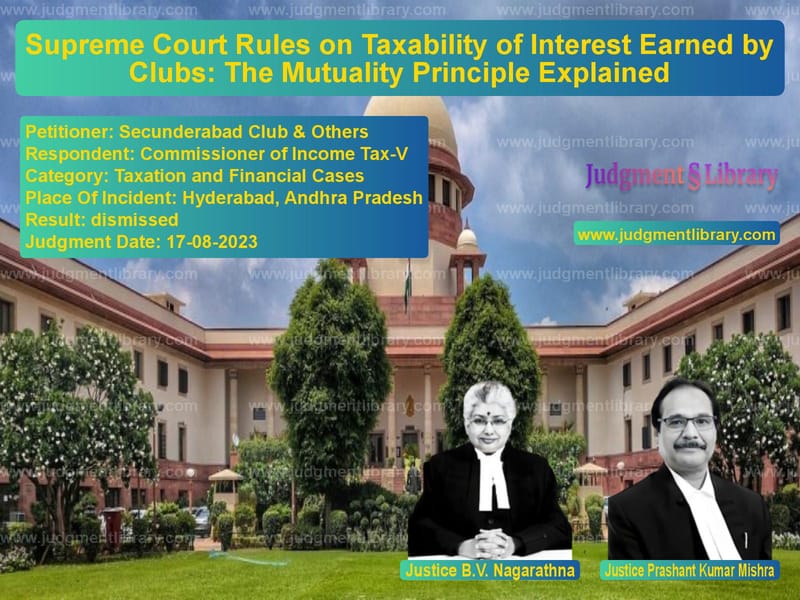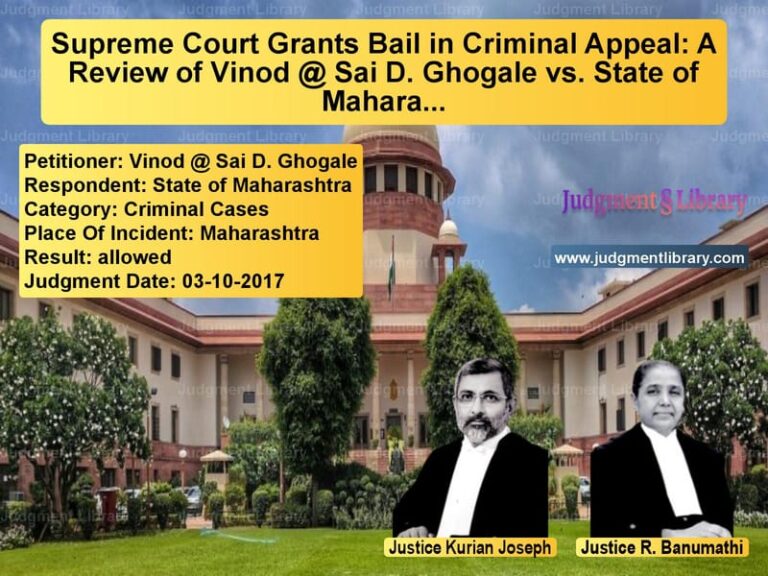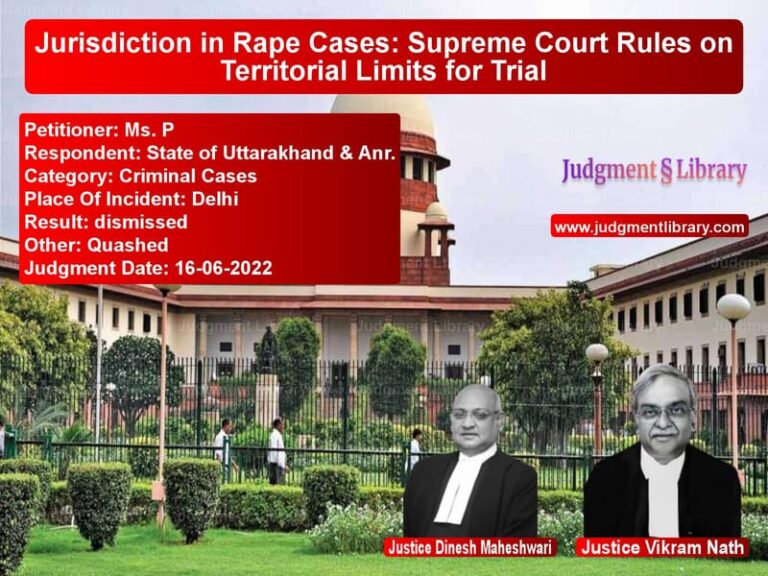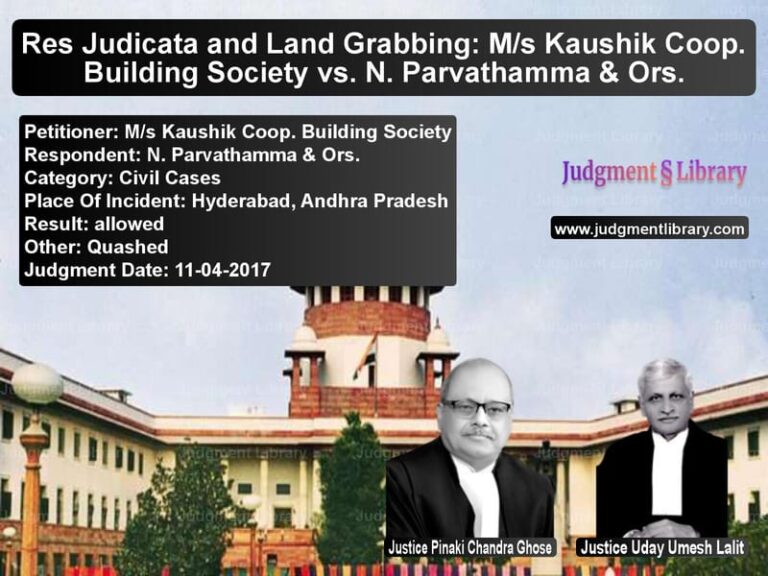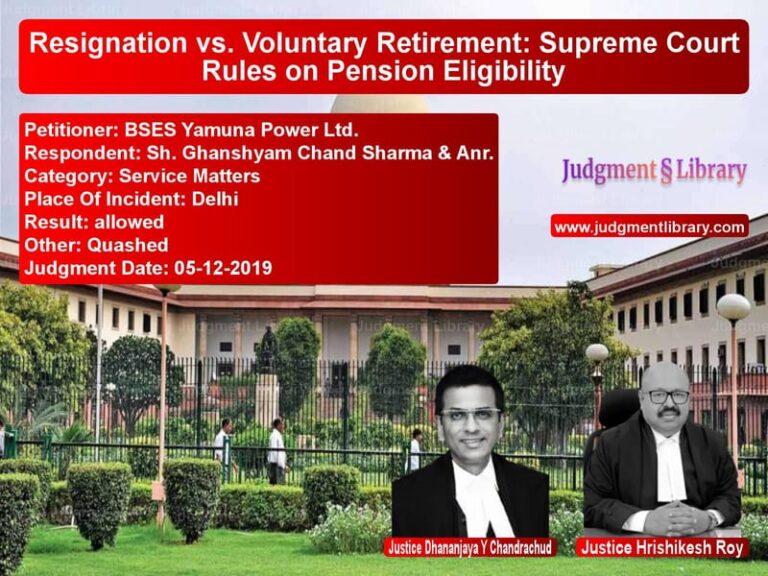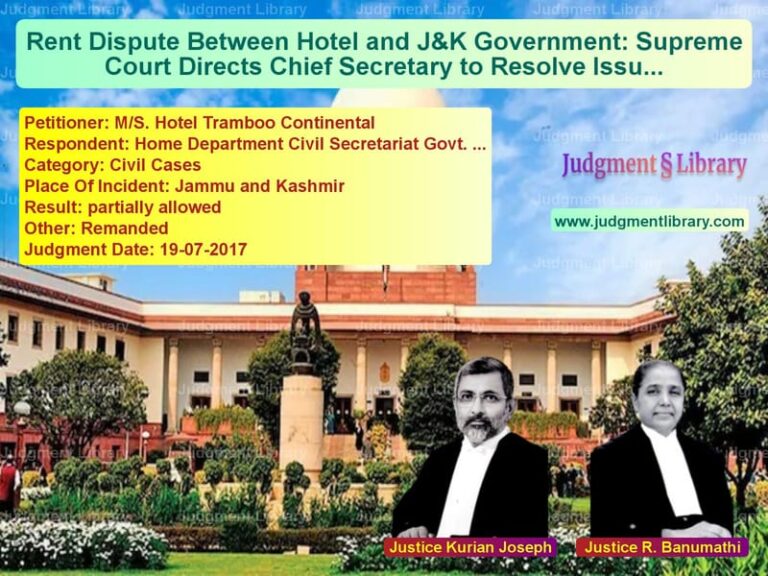Supreme Court Rules on Taxability of Interest Earned by Clubs: The Mutuality Principle Explained
The Supreme Court of India recently ruled on a significant tax law dispute concerning whether interest earned on bank deposits by clubs is taxable under the Income Tax Act, 1961. The judgment, delivered by B.V. Nagarathna and Prashant Kumar Mishra, upheld the principle that such interest is subject to taxation and not protected by the doctrine of mutuality.
The case, involving Secunderabad Club and other clubs, revolved around whether the clubs’ deposit of surplus funds in banks could be considered a mutual transaction or whether it fell outside the mutuality principle, thereby attracting income tax.
Background of the Case
The case stemmed from the tax assessments of several prestigious clubs, including Secunderabad Club, Madras Gymkhana Club, Madras Cricket Club, The Coimbatore Cosmopolitan Club, Madras Club, Wellington Gymkhana Club, and Coonoor Club. These clubs had deposited surplus funds in banks and argued that the interest earned on these deposits was not taxable due to the principle of mutuality.
Read also: https://judgmentlibrary.com/supreme-court-upholds-service-tax-classification-in-it-software-dispute/
Chronology of Events
- 2011-2012: Various clubs filed appeals challenging tax assessments.
- 2013: The Supreme Court ruled in Bangalore Club v. Commissioner of Income Tax, holding that interest on bank deposits is taxable.
- 2023: The present appeals were heard to reconsider whether the decision in Bangalore Club should be overruled.
- August 17, 2023: The Supreme Court dismissed the appeals, upholding Bangalore Club and ruling that interest on deposits is taxable.
Petitioner’s Arguments
The appellant clubs, represented by Senior Counsel Arvind Datar and Other Advocates, contended:
- The clubs operate on the principle of mutuality, meaning their earnings should not be taxed.
- The surplus funds are generated from members and used exclusively for their benefit.
- The tax exemption applied to the revenue from rooms, halls, and recreational facilities, so it should also apply to interest income.
- The ruling in Cawnpore Club v. Commissioner of Income Tax (1998) had recognized mutuality for club earnings.
- Interest income was not earned from commercial activities but was merely an investment of surplus funds.
Respondent’s Arguments
The Commissioner of Income Tax, represented by Additional Solicitor General Balbir Singh, countered:
- The clubs’ surplus funds were deposited in banks, which used them for commercial lending.
- This broke the “closed loop” of mutuality, making the income taxable.
- The decision in Bangalore Club had already established that interest on bank deposits is taxable.
- Mutuality applies only where contributors and beneficiaries are identical, which was not the case here.
- The clubs were earning interest income from third-party banks, which is not a mutual transaction.
Supreme Court’s Analysis
The Supreme Court ruled against the appellant clubs, reaffirming that the mutuality principle does not apply to interest earned on bank deposits.
1. Identity of Contributors and Beneficiaries
The Court noted that for the mutuality principle to apply, the contributors to a common fund must also be its sole beneficiaries. However, in this case, the funds were deposited with banks, which used them for lending and commercial purposes.
Read also: https://judgmentlibrary.com/supreme-court-upholds-interrogation-in-gst-evasion-case-key-takeaways/
2. The Principle of Mutuality and Tax Law
The judgment examined past cases and the evolution of the mutuality doctrine, particularly Bangalore Club, which held:
“A person cannot make a profit from themselves, but when money is invested in a bank, the funds are exposed to commercial use, severing mutuality.”
3. No Special Tax Treatment for Clubs
The Court rejected the argument that clubs should receive special tax treatment for interest earnings, stating:
“Just because a club operates for the benefit of its members does not mean it can claim tax exemption on all earnings.”
4. Reaffirmation of Bangalore Club
The Court ruled that the decision in Bangalore Club was binding and did not need reconsideration. It emphasized that the taxability of interest income was already well established.
Final Verdict
The Supreme Court ruled:
- The appeal was dismissed, upholding the taxability of interest earned by clubs.
- The principle of mutuality does not apply to interest earned on bank deposits.
- The ruling in Bangalore Club remains binding.
- The clubs must pay tax on their interest earnings.
This judgment clarifies that clubs cannot claim a blanket exemption from income tax under the mutuality principle when earning interest from third-party banks. It reinforces the view that mutuality applies strictly where contributors and beneficiaries remain identical throughout the transaction.
Petitioner Name: Secunderabad Club & Others.Respondent Name: Commissioner of Income Tax-V.Judgment By: Justice B.V. Nagarathna, Justice Prashant Kumar Mishra.Place Of Incident: Hyderabad, Andhra Pradesh.Judgment Date: 17-08-2023.
Don’t miss out on the full details! Download the complete judgment in PDF format below and gain valuable insights instantly!
Download Judgment: secunderabad-club-&-vs-commissioner-of-inco-supreme-court-of-india-judgment-dated-17-08-2023.pdf
Directly Download Judgment: Directly download this Judgment
See all petitions in Income Tax Disputes
See all petitions in Judgment by B.V. Nagarathna
See all petitions in Judgment by Prashant Kumar Mishra
See all petitions in dismissed
See all petitions in supreme court of India judgments August 2023
See all petitions in 2023 judgments
See all posts in Taxation and Financial Cases Category
See all allowed petitions in Taxation and Financial Cases Category
See all Dismissed petitions in Taxation and Financial Cases Category
See all partially allowed petitions in Taxation and Financial Cases Category

